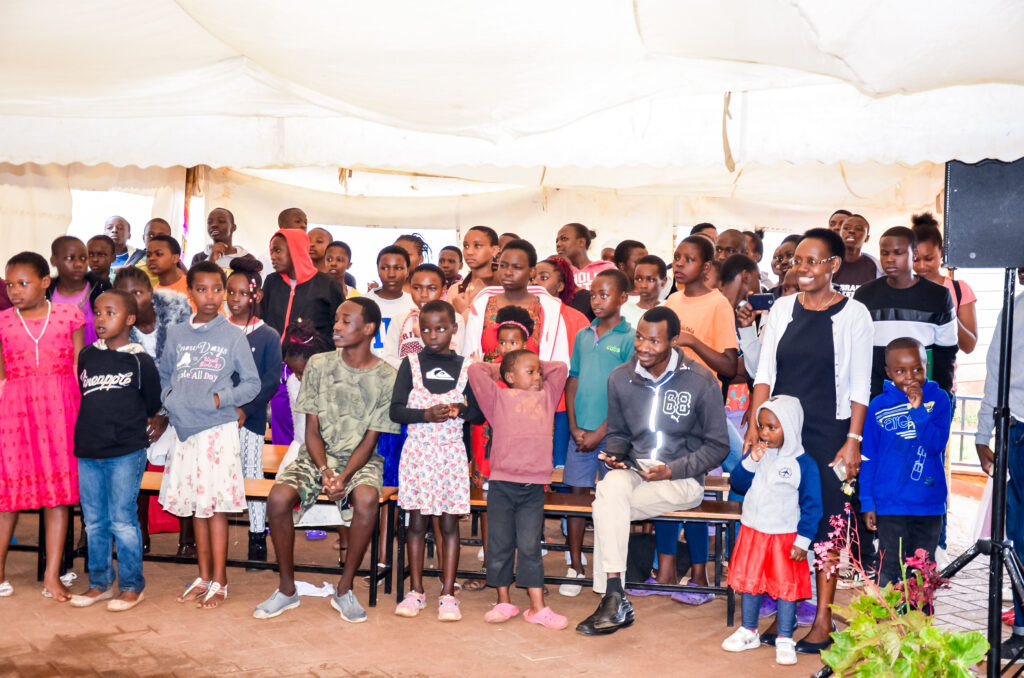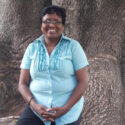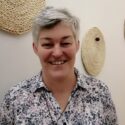Since 2008, Leonida Oriki, Ibvm from Kenya, is the director of ‘Women for Women in Africa. They work in Kibera, a big slum in the outskirts of Nairobi, Kenya, where they offer opportunities to about 400 children a year, with ages ranging from 3 to 25 years old.
This is a really intense work so when Leonida finds a little free time, she loves hiking and going to the bush: “I really like adventure, learning new things, meeting people, visiting countries… and reading, although I don´t get too much time to do any of these nowadays”.
The Women for Women project started from the initiative of an Australian woman who visited the slum years ago. When she went back to her country, she started talking and sharing about the situation with other women, and they decided to do something to help. They realized that sending money was ok, but it wouldn’t change things. When they asked the Kibera women what they needed the most, they said “we want education for our children”. And that’s how the centre started.
Today, they have different projects. Basic education for children, boys and girls; an IT programme for teenagers, so they can get skills and earn a little money; and, of course, formation programmes for women so they can run their own little business, such us selling vegetables, fried fish, cooked meals… They also have a small microfinance programme where they lead to themselves: when a woman needs money, she can borrow from the others, and give it back the following week. Finally, they had to start a special programme to help women trafficked from Uganda to work as housemaids. Women who have children but no husbands, no documents, no family and no one to help them.
After 13 years at the head of the organization, Oriki recalls how she arrived there: “At the beginning, I wasn´t meant to stay. I came from a very different place, from a privileged position. I came because I felt called to something different, but I was planning to stay there only for a short time. Nevertheless, seeing all this pain, suffering and poverty, I realized I really wanted to do the best I could to help offer them equal opportunities”.
I want to do the best I can offer them equal opportunities
And that’s something we are really doing, offering an accompaniment that goes beyond the school years. “Life in the slum is very hard, so we offer them the possibility to live in boarding schools, we feed them, we discuss their careers with them. We have very successful children. Some of them are now working in the best hospitals in the country; others are working in the presidential office… And most of them have been able to get their families out of the slum. This makes us very proud”.
You are about to celebrate your 25 years in the Institute. How did you get to know the Loreto sisters and why did you join?
I grew up in a very catholic family, we all used to pray together and go to church… and I went to a school run by nuns from Britain. But when I was 14, my father died and that threw us into great poverty. Up to that I had never really thought about being a nun, but I really liked the sisters, praying, and going to church… I was very religious and I always prayed to God that if he helped me through my schooling, I would do anything he asked me… I did pass my exams I got help to pay my fees and one day I met a sister from Loreto who came to my school. She invited me to a workshop, I attended and… from that day… I have never looked back! I think God wanted me here.
And now, you are celebrating the 100 years of the Congregation! What are your projects for the future?
I am in the Leadership Team, and we decided to celebrate the jubilee by going where the need is greatest. We are hoping to start a school on the coast of Kenya, because that area has great difficulties: children are out of school, abused, trafficked, and in prostitution…
We have also decided to start a scholarship programme to support children who cannot afford to go school, and we have had a donation from the very president of the country, who is a past pupil, as a start. We are very happy!
And how are you living the Union Process? What experiences do you have?
My first experience was in the novitiate, in 1997, there we had some German sisters who visited us, they were coming from Zimbabwe. Then, some years later, we had a sister from Zimbabwe living in one of our communities, and a visit from Mercy Shumbamhini, the provincial. But I haven´t really had much personal experience with them yet.
What are your fears, hopes, expectations about the Process?
I have to say that I have mixed feelings. I’m very opened to the Union, but I wonder how the formal process is going to be. Anyway, I’m sure that together we are going to be better; we are going to achieve great things! This is what Mary Ward wanted.



